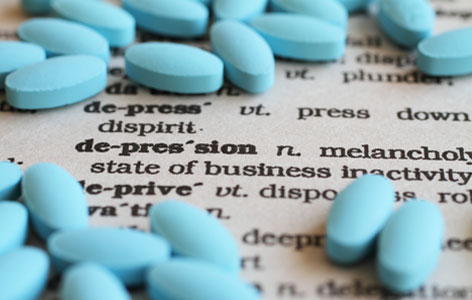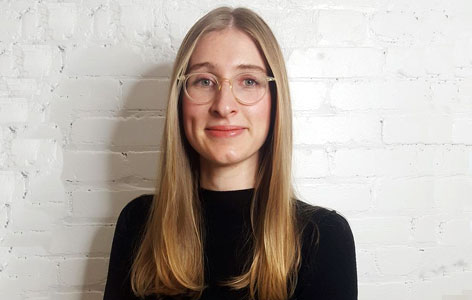Home page Description:
Antipsychotics don’t reduce the efficacy of rTMS.
Posted On: December 19, 2016

By Shaalee Dworski, ORT Times Writer and UHN Trainee
Depression is remarkably common—1 in 10 people experience clinical depression at some point in their lives. Each person’s depression is unique, making it challenging to find the correct treatment for each individual.
Patients with major depressive disorder (MDD) may try a combination of medications—including antidepressants and antipsychotics—and non-medicinal adjuncts, such as psychotherapy. When combinations of medications and psychotherapy fail, as they do in up to 1/3 of patients, there is another option now becoming available: brain stimulation.
An increasingly common form of brain stimulation to treat MDD is repetitive transcranial magnetic stimulation (rTMS). Conventional rTMS protocols for MDD stimulate targeted groups of neurons for 30-60 minutes but result in a long-lasting effect on neurons. A new type of rTMS—intermittent theta-burst stimulation (iTBS)—is even faster. Stimulation for only 1-3 minutes provides the same long-lasting effect on neurons.
Although this new, brief treatment technique looks promising, there’s a potential problem. Many patients take antipsychotics (which sometimes help boost the effects of antidepressants), but previous studies have suggested that antipsychotics may block the effects of iTBS. So, for patients taking antipsychotics, their medications might prevent rTMS from working properly.
Laura Schulze, a PhD candidate in Dr. Jonathan Downar’s laboratory, and colleagues, investigated whether antipsychotics reduce the therapeutic efficacy of rTMS. They reviewed the charts of 105 patients with MDD who received iTBS in addition to their regular medications, which for some patients included antipsychotics.
Surprisingly, patients who received iTBS with antipsychotics did not respond worse to treatment than those without antipsychotics. Instead, there was a trend for those on antipsychotics to have a better treatment response, and higher doses of antipsychotics correlated with a better response.
While it is unclear why patients on antipsychotics seem to do as well, or better, as patients not on antipsychotics, the result is reassuring. Patients who are taking these medications may continue to do so while undergoing rTMS treatment, without having to worry that their medications may reduce the effectiveness of their brain stimulation treatment.
Click here to read the original article.
The ORT Times spoke with the first author, Laura Schulze.
Does this study open the door to investigating the contribution of various combination treatments for depression?
To date, the effect of combination treatments, including pharmacotherapy, on clinical outcomes of rTMS in MDD has, to our knowledge, remained unexplored territory. This is in part due to the high heterogeneity of medication regimens and concomitant therapeutic interventions seen in this patient population.
Although results from this proof-of-concept study encouragingly suggest that antipsychotics do not block the effects of rTMS in MDD, future randomized controlled trials of rTMS combined with standardized regimens of dopaminergic medications are needed. For example, in the future we might see whether combining rTMS with dopamine-blocking medications like antipsychotics, or dopamine-boosting medications like stimulants, could enhance the therapeutic effects of the treatment.
Depression is remarkably common—1 in 10 people experience clinical depression at some point in their lives. Each person’s depression is unique, making it challenging to find the correct treatment for each individual.
Patients with major depressive disorder (MDD) may try a combination of medications—including antidepressants and antipsychotics—and non-medicinal adjuncts, such as psychotherapy. When combinations of medications and psychotherapy fail, as they do in up to 1/3 of patients, there is another option now becoming available: brain stimulation.
An increasingly common form of brain stimulation to treat MDD is repetitive transcranial magnetic stimulation (rTMS). Conventional rTMS protocols for MDD stimulate targeted groups of neurons for 30-60 minutes but result in a long-lasting effect on neurons. A new type of rTMS—intermittent theta-burst stimulation (iTBS)—is even faster. Stimulation for only 1-3 minutes provides the same long-lasting effect on neurons.
Although this new, brief treatment technique looks promising, there’s a potential problem. Many patients take antipsychotics (which sometimes help boost the effects of antidepressants), but previous studies have suggested that antipsychotics may block the effects of iTBS. So, for patients taking antipsychotics, their medications might prevent rTMS from working properly.
Laura Schulze, a PhD candidate in Dr. Jonathan Downar’s laboratory, and colleagues, investigated whether antipsychotics reduce the therapeutic efficacy of rTMS. They reviewed the charts of 105 patients with MDD who received iTBS in addition to their regular medications, which for some patients included antipsychotics.
Surprisingly, patients who received iTBS with antipsychotics did not respond worse to treatment than those without antipsychotics. Instead, there was a trend for those on antipsychotics to have a better treatment response, and higher doses of antipsychotics correlated with a better response.
While it is unclear why patients on antipsychotics seem to do as well, or better, as patients not on antipsychotics, the result is reassuring. Patients who are taking these medications may continue to do so while undergoing rTMS treatment, without having to worry that their medications may reduce the effectiveness of their brain stimulation treatment.
Click here to read the original article.
The ORT Times spoke with the first author, Laura Schulze.
Does this study open the door to investigating the contribution of various combination treatments for depression?
To date, the effect of combination treatments, including pharmacotherapy, on clinical outcomes of rTMS in MDD has, to our knowledge, remained unexplored territory. This is in part due to the high heterogeneity of medication regimens and concomitant therapeutic interventions seen in this patient population.
Although results from this proof-of-concept study encouragingly suggest that antipsychotics do not block the effects of rTMS in MDD, future randomized controlled trials of rTMS combined with standardized regimens of dopaminergic medications are needed. For example, in the future we might see whether combining rTMS with dopamine-blocking medications like antipsychotics, or dopamine-boosting medications like stimulants, could enhance the therapeutic effects of the treatment.

Laura Schulze, first author and UHN trainee




